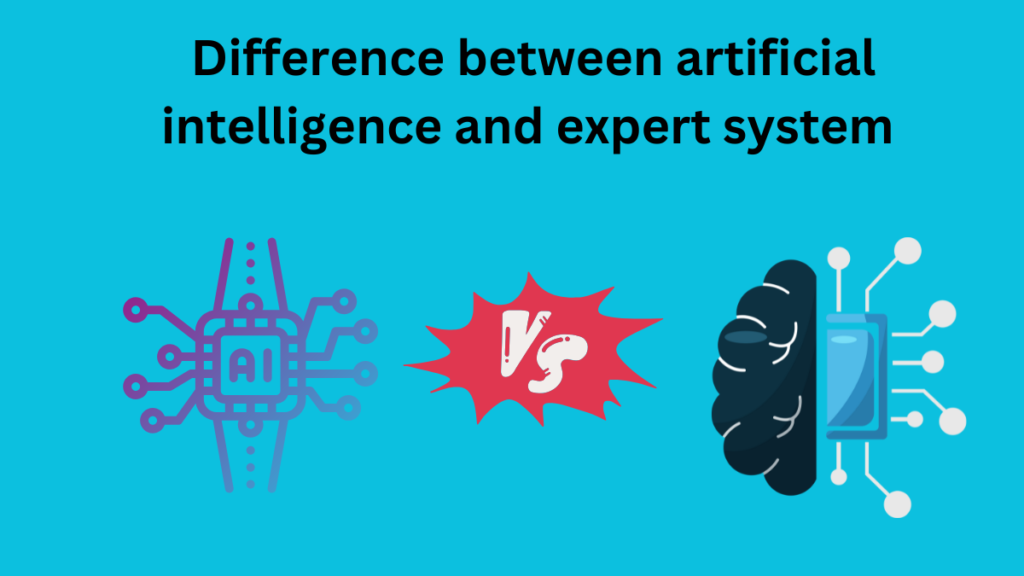
When it comes to machines, Artificial Intelligence (AI) systems and Expert Systems (ES) are transformational technology. They completely redefine the way machines make decisions, automate activities, and solve problems for humans. While the two are similar in some aspects, they differ considerably in their underlying concepts, operational methodology, and applications. This article, therefore, elaborates on how exactly these two differ from each other so that their unique roles and capabilities can be clarified.
What Really Is AI?
Artificial Intelligence is an area of computer science granting scientists skills to imitate human intelligence. Therefore, AI systems learn, adapt, and devise a means of operation based on data input. It applies sophisticated algorithms to recognize patterns, solve problems, and perform tasks with little human interference.
Key Features of Artificial Intelligence:
Learning: AI systems rely on machine learning models to advance from data over an extended period.
Adaptability: They change their performance dynamically with respect to a change in their environment.
General Purpose: AI can be applied in various spaces like healthcare, finance, and retail.
Types of Artificial Intelligence:
Narrow AI: Expert in performing particular functions (for example, recommendation systems).
General AI: Being able to perform all mankind cognitive functions (which is theoretical at this time).
Superintelligent AI: Smarter than human beings (possibly far in the future).
What is an Expert System?
Expert Systems are the specialized software systems impersonating human decision-making for a particular domain. These systems use a knowledge base and an inference engine to reach solutions or recommendations.
Key Features of Expert Systems:
Domain-Based: Builds for narrow applications, such as medical diagnosis or troubleshooting.
Rule-Based Reasoning: Operates on predetermined rules.
No Learning: It won’t get smarter until a human intervenes.
Components of Expert Systems:
Knowledge Base: Contains facts and domain rules.
Inference Engine: Applies logical rules to the knowledge base to deduce new information.
User Interface: Provides interaction with the user.
👉 Also read Differences between Expert Systems and Machine Learning
Key Differences Between AI and Expert Systems
| Feature | Artificial Intelligence | Expert Systems |
|---|---|---|
| Learning Ability | Learns and improves from data | Does not learn, relies on static rules |
| Adaptability | Highly adaptable across domains | Limited to specific tasks |
| Technology Used | Machine learning, neural networks | Rule-based reasoning |
| Decision-Making | Data-driven | Rule-driven |
| Scope | Broad and multi-purpose | Narrow and task-specific |
| Examples | Chatbots, autonomous vehicles | Medical diagnostic systems |
Application of Artificial Intelligence and Expert Systems
Artificial Intelligence Applications:
Healthcare: To predict diseases and analyze patient information.
Finance: Fraud detection and algorithmic trading.
Retail: Personalized shopping experiences.
Transportation: Self-driving cars.
Expert System Applications:
Medicine: Helping in diagnosis and treatment planning.
Engineering: Troubleshooting systems and decision support.
Business: Credit scoring and customer support.
Agriculture: Crop disease management.
AI Versus Expert Systems in Decision Making
While both aid in decision-making, AI and Expert Systems have entirely different ways of doing things: AI uses historical data to make probabilistic predictions, whereas Expert Systems use deterministic logic to derive conclusions.
Advantages and Limitations
Advantage of AI:
Can learn and adapt.
Handles fairly complex, multidimensional tasks.
Performs timing solutions with rigour and accuracy and is also a scalable solution.
AI Limitations Include:
Training requires enormous amounts of data.
Computational costs are high.
Some potential ethical and privacy concerns.
Advantage of Expert Systems:
Consistent performance in a domain.
Transparent decision-making process.
Quick implementation in specific tasks.
Limitations of Expert Systems:
Limited flexibility and adaptability.
Unable to cope with new scenes without an update.
Reliance on human experts for initial specification of rules.
The Future of AI and Expert Systems
The AI Sunshine Route:
Artificial Intelligence has come to ignite innovations literally in every branch and area. Enhanced deep learning, natural language processing, and robotics will build up thorough developments, making AI systems more and more indispensable like human beings.
An Expert System Works in Every Field:
While AI might be the current buzzword, Expert Systems are still relevant in domains that require value-based reasoning using rules.
you are information is stand out of the box
i just love your content
helpful content
Content is beneficial to students and job seekers. If you add case studies of these two systems, it will be better.
yes sure i will